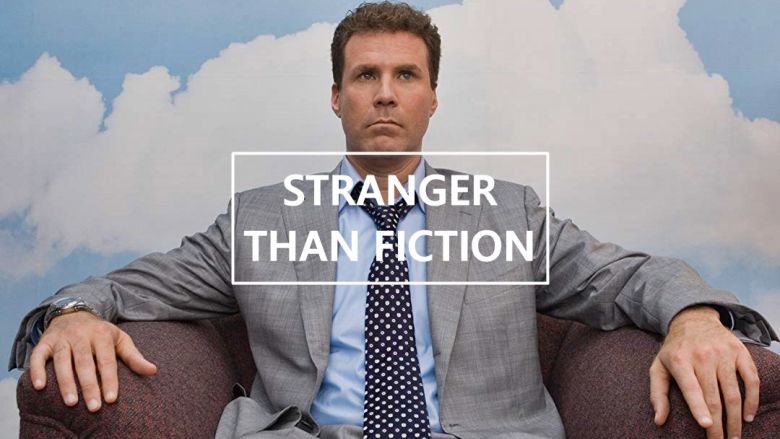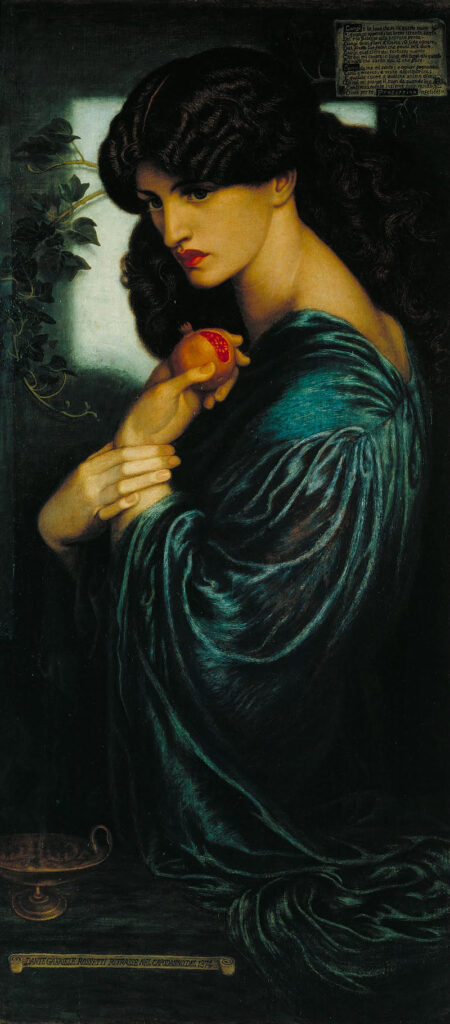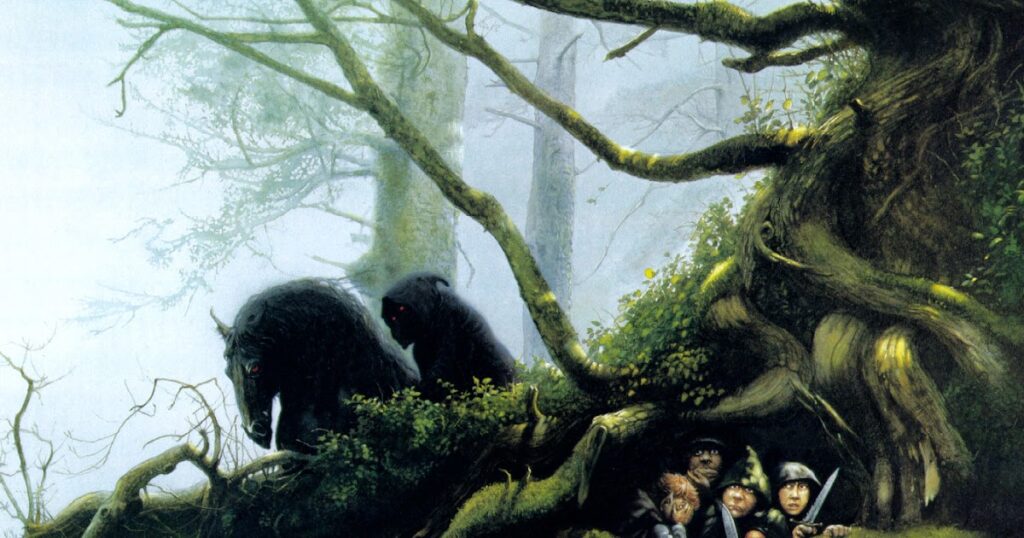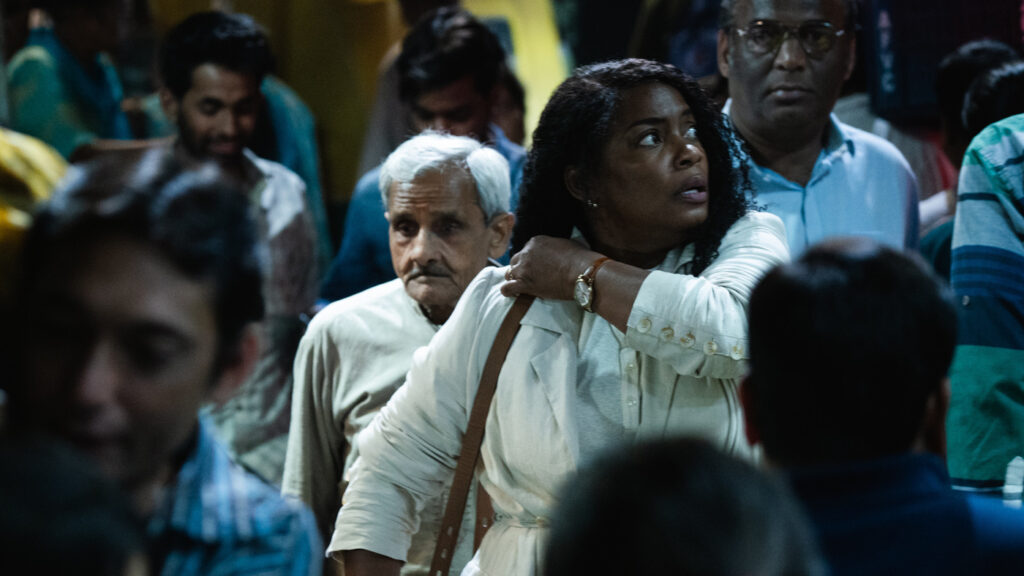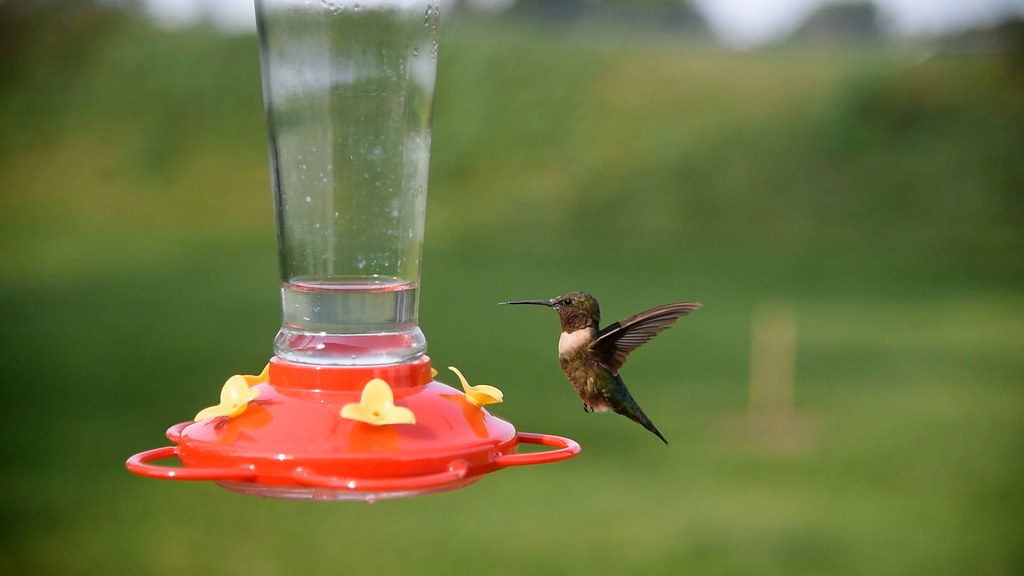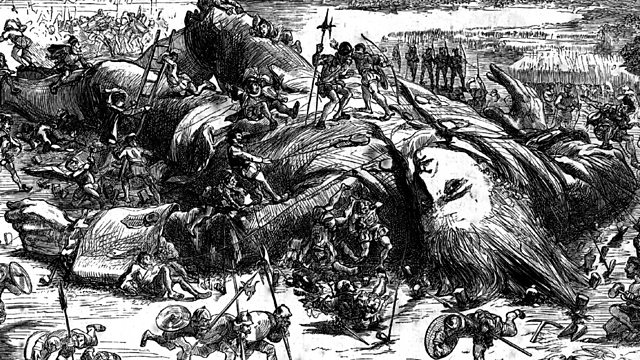Note: If you wish to receive, via e-mail, (1) my weekly newsletter or (2) daily copies of these posts, write to me at [email protected]. Comments may also be sent to this address. I promise not to share your e-mail with anyone. To unsubscribe, write here as well.
Sunday
During my recent trip, I screened the 2006 film Stranger Than Fiction at the Holy Cross Lutheran Church in Greenbelt MD, focusing on the movie’s Lenten theme. I hadn’t fully appreciated until our discussion, however, just how Lenten the film is.
In the film IRS agent Harold Crick (Will Farrell), living a lonely and overregulated existence, awakes one morning to discover that a voice in his head is narrating his life. It so happens that he is a character in a book and that the voice is that of author Karen Eiffel (Emma Thompson), who has created him. Disturbed, he goes to literature professor Jules Hibbert (Dustin Hoffman), who starts him wondering whether his life is a comedy or a tragedy. As Hibbert puts it,
To quote Italo Calvino, “The ultimate meaning to which all stories refer has two faces: the continuity of life, the inevitability of death.” Tragedy, you die. Comedy, you get hitched.
Crick begins a systematic examination of his life and concludes that he is in a tragedy, even as he increasingly realizes that he wants to live. After informing him that we all die, Hibbert then advises him to make his life “the one you’ve always wanted.” Taking up the challenge, Harold begins a relationship with baker Ana Pascal (Maggie Gyllenhall) and learns how to play the guitar. But since he also knows he’s in a tragedy, he goes in search of the author to plead for his life.
While this is going on, we watch Eiffel grappling with how to finish her novel. She herself is a chain-smoking mess, and while all of her previous novels have ended with dead protagonists, she’s not sure she wants to end her current novel this way—even though, artistically speaking (or at least in Professor Hibbert’s opinion), a tragic ending is the better ending. As I watched her struggle, I thought of Samuel Richardson and Charlotte Bronte, who killed off characters that their readers desperately wanted them to keep alive (Clarissa Harlowe in Clarissa and Paul Emanuel in Villette).
It so happens that Harold, to whom she gives a draft copy of the novel that has him dying, ends up agreeing with Professor Hibbert. He withdraws his request that Eiffel change the ending, concluding that he must die for the sake of art and beauty.
Since I was thinking of the film in terms of Lent, I couldn’t help but recall Jesus’s Garden of Gethsemane moment. First resisting but then accepting the narrative that has been written for him, Jesus says, “My Father, if it is possible, may this cup be taken from me. Yet not as I will, but as you will.”
But as one of our discussants noted, the Christian story is a comedy, not a tragedy, and Stranger Than Fiction proves to be one as well. Ignoring the professor, who thinks she is ruining what would otherwise be her masterpiece, Eiffel comes up with a miraculous ending: although Crick steps in front of a bus to save a boy, a metal fragment from his watch lodges in his arm, preventing an artery from bleeding out. At the end he is recovering in a hospital room and receiving a visit from Ana.
Picking up on the Easter theme, my college roommate Paul Thompson, who had invited me to give the talk, wrote me in a follow-up e-mail,
It seems that when Harold surrenders to dying as “a good ending” of the story, the surprise of a transformed ending happens. It seems to me in my reading of mystics and maybe also St. Paul, that the goal of life is to surrender our ego-self, not with the expectation of living forever—not as a means to an end—but as an actual trust in the dying itself. Resurrection is just a welcome “surprise,” from a God of love who promises surprises that are beyond our imagination and may be beyond our narrow sense of self.
The author offers a similar idea as she argues with Professor Hibbert on how to end her book. As she explains her authorial decision, I thought of Jesus:
Because it’s a book about a man who doesn’t know he’s about to die and then dies. But if the man does know he’s going to die and dies anyway, dies willingly, knowing he could stop it, then… I mean, isn’t that the type of man you want to keep alive?
Her way of keeping him alive is significant. The watch that saves Harold has been the symbol of his boring and meaningless existence. With its shattering, Harold steps out of profane time into sacred time. By accepting his death, Harold shows that death doesn’t get the last word.
And it’s not only Harold who has been living a life of quiet desperation. In his acceptance of his destiny, he shows the author and the professor that they too have been stuck in an old story. Through Harold—or through the power of literature (since he’s a literary character)—they realize that a much bigger narrative is available to them. They have been offered a new dispensation.
The author ends this new story with a deeper appreciation of life than (from what we can tell) she has previously had. If we recall that her story is the frame story—that this is a film about an author whose writing takes her to hopeful places she hadn’t expected—then the film’s final montage represents awakening. Let’s call it the Easter promise.
Stranger than Fiction delivers this promise through a film-ending montage, recounted by Eiffel’s narrative voice, that begins with Ana offering Harold a cookie:
As Harold took a bite of Bavarian sugar cookie, he finally felt as if everything was going to be ok. Sometimes, when we lose ourselves in fear and despair, in routine and constancy, in hopelessness and tragedy, we can thank God for Bavarian sugar cookies. And, fortunately, when there aren’t any cookies, we can still find reassurance in a familiar hand on our skin, or a kind and loving gesture, or subtle encouragement, or a loving embrace, or an offer of comfort, not to mention hospital gurneys and nose plugs, an uneaten Danish, soft-spoken secrets, and Fender Stratocasters [the guitar Harold buys], and maybe the occasional piece of fiction [my italics]. And we must remember that all these things, the nuances, the anomalies, the subtleties, which we assume only accessorize our days, are effective for a much larger and nobler cause. They are here to save our lives. I know the idea seems strange, but I also know that it just so happens to be true.
Most of these examples are accompanied by shots of people we have seen in the film, including Professor Hibbert, who shows up in conjunction with “nose plugs.” While earlier we have seen him as a lifeguard at the faculty pool, this time he is diving into the pool, as though he no longer is satisfied with being just a watcher of life. Perhaps, as he advised Harold, he’s decided to go live the life he’s always wanted.
And as for the author coming up with an ending she never expected, I think of what John Gatta says about God’s relationship to creation in Green Gospel: Foundations of Ecotheology . (I’ve written about Gatta’s illuminating book here, here, and here.) Rather than creating a blueprint that is mechanistically carried out (Gatta is criticizing the theory of “intelligent design” here), God participates in the unfolding of creation. It’s as though, He (or She) has created a process that surprises and teaches even Him/Her. Gatta writes,
In contrast to such a predesigned, blueprint model of creation, we might consider how, in the Wisdom tradition of the Old Testament, an enigmatic female personification of Wisdom once sported with God in playful “delight, rejoicing before him always” in the elemental acts of creation, “rejoicing in his inhabited world and delighting in the human race” (Proverbs 9:30-31).
Gatta also mentions the final voice from the whirlwind heard by Job, which “recalls how the divine artisan’s genesis of all things had melded with a glorious music, ‘when the morning stars sang together and all the heavenly beings shouted for joy’ (Job 38:7).” Gatta points out that this “note of musicality, of divine creation as a ceaseless and soul-stirring flow rather than a static design, has been echoed since by countless writers and lovers of nature.”
Karen Eiffel may not be God, but we can imagine her as one creating in God’s image as she rejoices and delights in her fictional creation. Through this creation, like God’s creation of Jesus, she has opened up new possibilities for herself and for her readers. The new story that emerges—like the Resurrection story—saves lives.
So yes, sometimes this vision is conveyed to us through an “occasional piece of fiction.”
